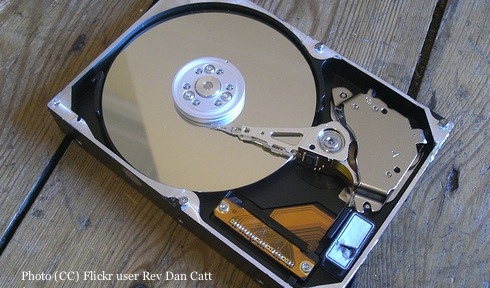Removal of hard drive and false claim of copyright ownership in company website and catalogs were misconduct sufficient to disqualify former employee from receiving unemployment benefits.
Binney v. Banner Therapy Products, Inc., — S.E.2d —-, 2008 WL 2370887 (N.C. June 12, 2008)
I covered this case back in 2006 after the appellate court’s decision. Now the state supreme court has reached a different conclusion.
Employee Binney was fired from her job because she claimed a copyright in the company’s website and catalogs (which she had helped create) and also because she took the hard drive of her work computer home with her over the weekend without asking. After she was terminated, she sought unemployment benefits. Her employer contested the claim.

The administrative body in charge of determining unemployment benefits found that Binney was terminated for employee misconduct and therefore not entitled to receive anything. Binney appealed that decision to a trial court, which affirmed the denial. She then appealed to the state appellate court, which reversed, and found that that given Binney’s position and responsibilities in the company and the reasonableness of her conclusions as to ownership of copyright, her actions did not rise to the level of misconduct that warranted a denial of benefits. [Internet Cases coverage of that decision.]
But the state supreme court reversed the appellate court, meaning that Binney is not entitled to benefits. The supreme court concluded that the appellate court incorrectly applied the standard of review, namely, whether the decision to deny benefits was based on “any competent evidence”.
As for the alleged misconduct of taking the hard drive home, the supreme court found that although the employer had no policy on removing hard drives, that did not contradict the administrative body’s finding that the employer did not authorize the hard drive’s removal. So there was competent evidence in the record that the removal was unauthorized, and corresponding misconduct in having removed it.
And as for claiming copyright in the website and materials, the supreme court similarly found that a determination of misconduct was supported by the record. Whether Binney believed in good faith that she had a personal copyright interest in the materials was irrelevant. She never asked for nor received permission to assert a personal claim on the company’s property by including the copyright statements, so in doing so, she engaged in misconduct.
